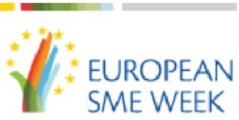 newsitems
newsitems  CoE Governance Head Mollari to EF:"e"-Democracy Ready to Boost Citizens Participation since Pandemic
CoE Governance Head Mollari to EF:"e"-Democracy Ready to Boost Citizens Participation since Pandemic
CoE Governance Head Mollari to EF:"e"-Democracy Ready to Boost Citizens Participation since Pandemic
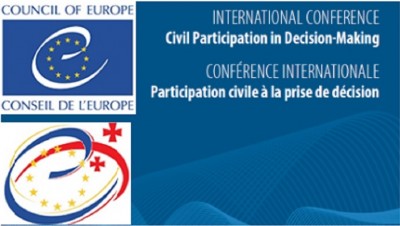
*Strasbourg/Angelo Marcopolo/- Replying to a relevant "Eurofora"s Question, the President a.i. of CoE's prestigious PanEuropean Committee on Democracy and Governance, Markku Mollari, from Finland, announced, in substance, that Digital "E"-Democracy is practically Ready, Nowadays, to Help Boost Citizens Participation to Public Decision-Making, (along the main lines of "Eurofora"s Project), particularly since the current Pandemic Virus' Crisis.
- And he did Not Exclude, a priori, that this may, "Later"-on, even "Lead" also to a "Hard Law", throughout CoE's 47 Member Countries, (See Infra).
Significantly, he said that in the Context of a landmark CoE's International Conference on civil Participation in Decision-Making, where "Eurofora" had been Invited to take an active part, by CoE's Presidency by Georgia, (November 2019-May 2020, shortly before Greece takes over, Later this Month, for the Period of May - November 2020, followed by Germany). Initially Scheduled for the Beginning of March in Strasbourg, this was the 1st CoE's International Conference obliged to be Postponed sine die, because of the Deadly Virus' Crisis, But it Resumed Nowadays, precisely in the Form of a Digital Web-Conference...
-------------------------
- "Eurofora" had practically Asked President Markku Mollari :
(A) "WHEN" he expected that a Link between "e-Democracy" and "civil Participation" might be Developed by the CoE, as he had Highlighted Earlier (See Infra), and Whether he "could ... be ... Explicit about its Content".
(B) "IF" he thought that, even an eventually "Soft Law" (f.ex. in the Form of a CoE's "Recommendation"), might, eventually, Become, Later-on, "at least Partially, also "Hard Law", f.ex. via National Judges' Case-Law, Legislators, Administrative Practice, etc., perhaps Coordinated by ECHR".
-------------------------------------------
- (A) "Thank you. To Answer the 1st Part of Your Question, the Guidelines on E-Democracy ...have Already been approved by the (CoE's) Committee on Democracy and Governance...", its President sharply replied to "Eurofora".
- But, at least for the Time being, this has been done "in the Form of a Toolkit", and just "in Substance", Not Yet "in their Final Version", as he pointed out.
=> In Consequence, "they Will be (Definitively and Completely) Approved", once Finalized, "in the (CoE) Committee's Next Plenary meeting", which is due, "most Likely", to be organized around this "Summer" 2020, (i.e. during the InComing Greek CoE's Presidency of May-November 2020), he Carefully Announced.
+ In Fact, these New (2020) CoE's "Guidelines" have a Solid "Base" "on Recommendation CM/Rec(2009)1 of the Committee of Ministers (CoE's Highest Political Body) to member States, on Electronic (e)-Democracy", Markku Mollari reminded. Which is "the 1st International Legal Instrument to set Standards in the field of E-Democracy" in the World, already 15 Years Earlier...
+ Concerning their Content (Comp. Supra), "in Line with the Focus on Multi-Level governance of the (CoE's) Committee on Democracy and Governance" in general, these New (2020) "Guidelines seek to provide Authorities at All Levels, with concrete Examples of Policies, Measures and Mechanisms that can contribute to EnRiching a Democratic Culture and Strengthening Democratic Practices and institutions, at National, Regional and Local level", he added.
++ Moreover, "these (New, 2020 CoE's) Guidelines are addressed to the Broad Range of Stakeholders, such as Public Authorities and their representatives, Political" organisations, "Individuals (Citizens), NGOs, and Civil Society at large, including Media, and the Business community", he specified. This is "In Line with the Consistent Approach Used by the CoE in the area of Democracy" in general.
+++ The, ("Currently Finalized"), "Documents include (also) Mechanisms related to e-Participation, e-Petitions and e-Referendums", he revealed Earlier, (but withOut going into Concrete Details).
----------------------------
(B) "With regards to Your 2nd Question, (Comp. Supra), these "Soft" Tools are meant to be Practical, and Helpful – they should be relatively Easy to apply... We intended for the many Examples in the document from various countries to act as an Inspiration - to apply them as Appropriate, share Ideas and get new ones", President Mollari Replied to "Eurofora".
- This goes "Even in Difficult circumstances", he Stressed.
+ However, At the Moment, he felt that "it is Too Early (sic !) to say Whether these will Lead to any “Hard Law”", (But withOut Excluding Anything, a priori)...
=> "That should be Evaluated Later", he Wisely Concluded, Replying to Our Ultime Query (Comp. Supra), in a way which Left the Future Open !
Topicaly,, CoE's Democracy/Governance Committee's President Markku Mollari from Finland, said that to "Eurofora", Just 1 Month Before the next EU Heads of State/Government Summit, on Mid-June, which is due to Deal also with the Forthcoming Exceptional "Conference on Europe's Future" (2020-2021+), where EU Citizens' Participation to Public Decision-Making is Notoriously at the Focus...
- At any case, it's a Fact that, "in the Present Day – no less during our current Health Emergency –", "one canNot discuss civil Participation withOut referring to anOther Theme, closely followed by the European (EU+CoE) community: e-Democracy", righfully Mollari Stressed Earlier.
- Because "Digital tools and Technologies can, and should, Support Democratic processes, by providing increased Access to political Decision-making, and enabling Citizens to Participate in the public Debate, in New Ways" he underlined.
=> That's why, "the good cooperation between New Tools (Internet) and Traditional tools of Participation, is the Key to building better Trust ...between different levels of Government and the wider civil Society", "Reflecting the Centrality of this topic for the present and future of Democratic practice".
At a Moment when the In-coming CoE's Greek Presidency, later this Month, (May-November 2020) seems reportedly due to Focus, precisely, on such Digital Tools, Both in order to ByPass Problems raised by the Virus' Crisis, and in order to Boost a Public Democratic Debate with Citizens on core Human Rights, Democracy and Rule of Law during Pandemics, while, at the Same Time, also the EU Leaders prepare an Exceptional 2020-2021 Conference on "Europe's Future", due to Focus also on EU Citizens' Participation to the Decision-making, the above-mentioned Key Observations of PanEuropean CoE's "Democracy and Governance" Committee's experienced President, are certainly of key Topical Interest.
(../..)
("Draft-News")
-----------------------------------------
Main Menu
Home Press Deontology/Ethics 2009 Innovation Year EU endorses EuroFora's idea Multi-Lingual FORUM Subscribers/Donors FAQs Advanced search EuroFora supports Seabird newsitems In Brief European Headquarters' MAPs CoE Journalists Protection PlatformBRIEF NEWS
- 00:00 - 02.06.2021
- 00:00 - 18.10.2020
- 00:00 - 19.06.2020
- 00:00 - 18.05.2020
- 00:00 - 20.04.2020
- 00:00 - 02.02.2020
- 00:00 - 09.12.2019
- 00:00 - 27.11.2019
- 00:00 - 16.11.2019
Popular
- Yes, we could have prevented Ferguson riots says World Democracy Forum's Young American NGO to ERFRA
- Spanish People Elect CenterRIGHT Majority with 1st Party and Total of 178 MPs (6 More than the Left)
- Pflimlin's vision
- The European Athletic "Dream Team", after Barcelona 2010 Sport Championship Results
- Source Conseil d'Europe à ERFRA: Debatre Liberté d'Opposants à Loi livrant Mariage+Enfants à Homos ?
- Head of BioEthics InterGroup, MEP Peter Liese : "Embryonic stem cell research reaching its END" !?
- Spain: Jailed Turkish Terror suspect with Explosive,Drones,Chechen accomplices stirs Merah+ Burgas ?
- UN Head Ban Ki Moon at CoE World Democracy Forum : - "Listen to the People !"
Latest News
- EUOmbudsmen Conference 2022: Digital Gaps affect People's Trust threaten EF Project on EU Future ?
- French Election : Black Out on Virus, but Obligation for Fake 'Vaccines" Challenged
- Both French Presidential Candidates point at "Humanism" in crucial times...
- France : Zemmour = Outsider may become Game Changer in Presidential + Parliamentary Elections 2022
- PACE President Cox skips Turkey Worst (Occupation) case compared to Russia (DeMilitarisation) query
Statistics
Posetioci: 56817876Archive
Login Form
Other Menu
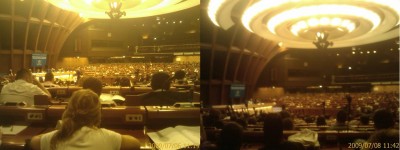
The recent paradox of freezing EU Talks with front-runner Croatia, while continuing controversial EU - Turkey talks, despite Zagreb's acceptance of Refugees' Human Rights to return, that Ankara refuses fex. in Cyprus, while both have "Good Neighborhood" problems vis a vis Slovenia, or Greece, Cyprus and Armenia respectively, can it be justified by the non-fullfilment of EU criteria, as Slovenia says, or, is it "Double Standards" ?
The question became unavoidable after statements by Presidents of Slovenia and Croatia, Tuerk and Mesic, respectively, to "EuroFora", exclusively or among Strasbourg's journalists this week at the CoE, on the sidelines of its 2009 Summer University for Political Schools, which topically brought them together as successive key-note speakers.
Comming only a few Months before EU checks Turkey's compliance to its commitments on Cyprus, etc., scheduled for December 2009, this obviously has a special importance for the coherence of EU Enlargement's principles.
Suspension of EU Negotiations is a normal consequence in case of a Candidate Country's failure to fullfil EU Conditions, such as "Good Neighborhood relations", stressed at first Slovenian President Danilo Tuerk, current CoE's chair.
But, regarding EU's Criteria, there shouldn't be any "Double Standards", reacted Croatian President Stjepan Mesic, commenting the fact that Turkey's controversial EU negotiations continue, while they were recently "freezed" in the case of Croatia, an "unquestionably European Country", which oficially accepts to respect Refugees Human Rights, contrary to Ankara's notorious refusals or reluctance.
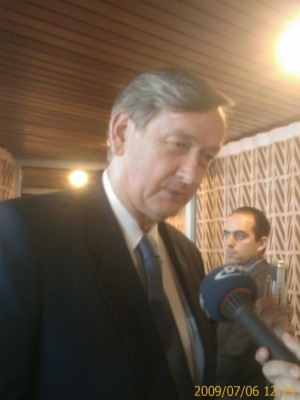
Questioned earlier what "consequences on EU's Enlargement policy" can have the "Ban on EU Membership Negotiations", imposed to Croatia, Tuerk replied that "this question comes down to the fulfillement of (EU) Criteria for membership. One has to look at each Candidate Country ., from the point of view whether it fullfils the Criteria that EU has set. One of them are Good Neighborhood Relations, I'd like to remind. And also, there are other factors, such as Justice, Home affairs, Rule of Law, and others".
- "Now, ..Candidate Countries are at Different Levels of fulfillement of Criteria", he observed.
- " Croatia is obviously the closest to that. I'm rather optimistic : I think that in the coming Months we'll have an opportunity to look at all these issues constructively and hopefully we'll be able to make progress". "My main concern, at this point, is the situation in Bosnia : We haven't seen enough progres domesticaly. We haven't seen enough during ..political parties within their country.We need a New Energy, a new energetic move towards the Candidature for EU membership. "Other (Western Balkan) Countries (Serbia, Montenegro, FYROM, Albania) have been making soaring Progress, and I think that they should be ready, in a few Years, for the Candidate status".
- "As far as the Western Balkans are concerned, .. nobody should be left outside" the EU, Slovenian's President concluded, ommitting to mention Turkey's controversial EU bid.
- "This process may be seen as Slow, but.. Slovenia has also has also been exposed to various "Booms of Slowness" in our accession period. But now we can say that the process was relatively quick, because changes which occur after becoming EU member, are quite large, and they require proper Preparations before the (EU) membership becomes a new factor, an impacting line for a new (EU) member country".
----------------------------
EU "Solidarity" ?
------------------------------
Slovenian statements made some participants from certain 3rd Countries as FYROM, etc. claim that "the Principle of EU Solidarity" would "produce a.. rising European Union Nationalism (sic !), against Non-EU Countries", as they said, asking unhappy foreign countries to form a "bloc" to exert pressure on the EU...
But Croatian President Stjepan Mesic dismissed that, supporting "EU Integration", "after the Economy also in Political" issues, as "the achievement" of our times. In EU there is "diversity, but it's United", he stressed, "EU has to be United so that it can become a central factor of Peace" also at the surrounding areas, he replied.
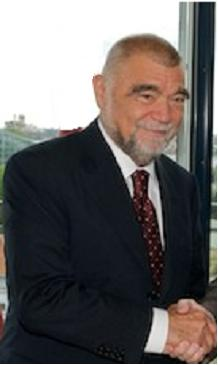
Speaking later exclusively to "EuroFora", the experienced twice President of Croatia, former President of the International "Non-Aligned" movement, denounced "Double Standards" in the way EU treats recently Croatia compared to Turkey :
- "I think that there shouldn't be Double Standards", stressed the Croatian President, in reply to a Question comparing the freeze of EU - Croatia talks, with the continuation of EU - Turkey talks, despite the fact that Croatia is an "unquestionably European country", while Turkey's EU bid is notoriously controversial.
Mesic was reacting to the observation that, even if he confirmed his "respect of Refugees' Human Rights to return, etc. (See infra), nevertheless, EU talks are suspended with Croatia.. While for oher, controversial candidates, who refuse to respect Refugees' Rights to return, etc., as fex. Turkey does in occupied Cyprus and elsewhere, EU negotiations continue".
- "I believe that Croatia's accession will confirm that all European Countries who fulfill all of the Conditions and achieve European Standards, have to join the EU. There shouldn't be any Double Standards", went on to add in reply President Mesic.
In this relation, Croatia's President found "of paramount importance", CoE's "mechanisms enforcing ECHR's judgements"
- "On Refugees and Displaced persons, the process will be completed only after the last person demanding to return will be allowed to do so !", President Mesic Croatia stressed earlier, setting a general standard of obvious importance also for otherr candidates, as f.ex. Turkey, often accused to exclude or heavily restrict Greek Cypriot Displaced persons' return to their Family Homes and ancestral land, provoke difficulties to Turkish-Kurd IDPs return to their home regions at the South-East, etc.
Some "2.000 People are still reported Missing" in former Yugoslavia, for some Years, (as in Cyprus, modern Europe's oldest case, for 3 Decades. Nagorno-Karabach, Tcecnya in Russia, etc, more recently), and Investigations "will only be completed after establishing the fate of the last one of them", he added.
Speaking earlier on "War Crimes", President Mesic stressed that "Leaders are responsible for (the) Wars (of the Past), not the People", and called against Impunity : "Individuals have to be held Responsible for Crimes. International Penal Tribunals have to persecute those individuals", perpetrators of War Crimes, he underlined.
Such statements naturally made Mesic rather popular at ECHR, whose President, French EuroJudge, Professor Jean-Paul Costa, looked particularly smiling when he welcomed him later on Wednesday afternoon, after Slovenian President Daniko Tuerk earlier this week.
Polls
SMF Recent Topics SA
- Record Hospitalisati... (0) Breadman
- How Many Infected by... (1) Thunderbird
- Real Cause for Europ... (0) Breadman
- Interesting Australi... (0) Aurora
- Plus de mRNA Faux-&q... (0) Aurora
- EU: Lukashenko as E... (0) WKalina
- Why NATO in Ukraine,... (0) Geopol
- Afghanistan's key : ... (0) Thunderbird
- Anti-Pass Demonstrat... (0) Aurora
- Veran - Fioraso : Mê... (1) JohnsonE













